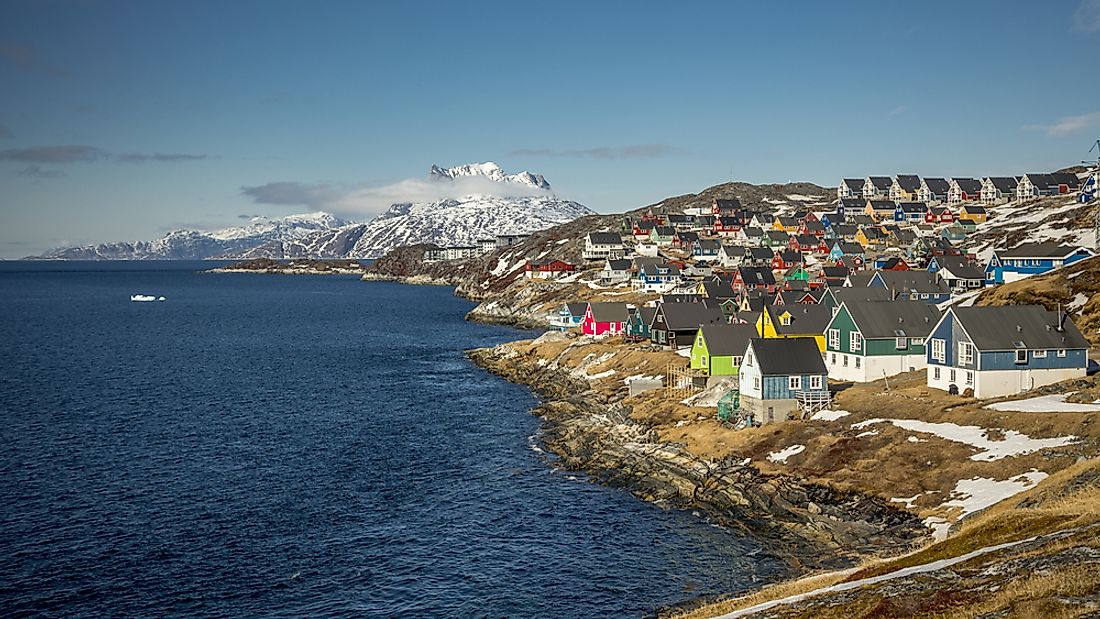Does Anyone Live in Greenland?

Greenland is an autonomous constituent country of the Kingdom of Denmark. The country is the largest island in the world and is located between the North Atlantic and Arctic Oceans. Geographically, Greenland is located in the North American continent, but politically and culturally the island is considered to be part of Europe.
Who Lives in Greenland?
Greenland covers an area of 836,330 square miles and is inhabited by only 56,000 people. Greenlandic Inuit people make up eighty-eight percent of this population, while Danish and other European groups make up the remaining 12%. A population density of 0.1 persons per square mile makes Greenland one of the least densely populated regions of the world. However, the population is not equally distributed since some parts of the country have not been settled due to the harsh climate.
History of Human Settlement in Greenland
Human settlement in Greenland is believed to date back approximately 4,500 years when Arctic peoples migrated from what is now Canada. In the 10th century, Norsemen settled in the region after the conquest of Iceland. Leif Erikson sailed from Greenland to North America and became the first European to reach the North American continent, 500 years before Christopher Columbus reached the Caribbean. An Inuit population later settled in Greenland during the 13th century.
Although Norwegians influenced the culture and politics of Greenland, it was not until the 10th century that the island came under the control of Norway. In the late 15th century, Norway was plagued by a series of diseases, including in the Black Death, forcing the country to relinquish control of its overseas territories, including Greenland. Portugal took control of the island and renamed it Terra do Lavrador.
Denmark re-established interest in Greenland in the early 17th century when the island became a significant market for Danish goods. Norway and Denmark allied to control the territory until 1814 when Norway could no longer sustain the alliance. Greenland officially became a constituent country of Denmark in 1953 and a member of the European Economic Community (EEC) 20 years later. However, after a 1982 referendum vote, Greenland chose to withdraw from the EEC.
Life in Modern Greenland
Greenland is among the harshest and remote countries in the world, but its location and climatic conditions have not prevented the spread of modern culture to the island. Climate change is turning some of the previously uninhabitable corners of the country into human settlements. Paved highways, shopping malls, supermarkets, nightclubs, and other facilities typical of modern cities are becoming a common sight in most of the inhabited areas. The capital city, Nuuk, and the towns of Qeqqata, Ilulissat, and Aasiaat are the preferred destinations of immigrants.











